Stirred and Spurred to Action
I was always bored sitting through sermons. They seemed tedious and irrelevant. A roundabout way to make a single point about one seemingly obvious value like respect, kindness, or generosity. Bat Mitzvah after Bat Mitzvah, I sat in the congregation, indifferent to the rabbi’s message.
At the same time, my interest in social justice was growing. Between my parents and my ultra-liberal YMCA sleepaway camp, I was becoming a young social justice warrior, passionate about every social issue I could find. The summer before my Bat Mitzvah, my cabin wrote stereotypes about women on a watermelon and threw it over the deck of our Dining Hall chanting, “Hey hey, ho ho, the patriarchy has got to go.”
But Judaism never seemed to offer anything that stoked my social justice fire. I didn’t hear many calls to action in services; partly because I wasn’t looking, and partly because services felt mundane to me. To me, Judaism felt like an out-of-date conservative religion to which I couldn’t really relate.
The only connection I’d ever experienced between my liberal values and Judaism was at my Bat Mitzvah. I stood next to my female rabbi on the bimah, wearing matching Women of the Wall tallitot. I felt empowered and supported, but the fact that this moment stood out meant something. In my experience with Judaism, this display of feminism was the exception, not the rule.
In February 2018 though, something changed.
I attended L’Taken, a program at the Religious Action Center, with my Confirmation class. It was two weeks after the shooting in Parkland, and we read Jewish texts and crafted arguments in support of gun violence prevention. We came together as Jews and lobbied our representatives in congress for change; not only on gun violence, but for reproductive rights, voting rights, immigration rights, and more. I spoke directly to my congressman in a room where every single person was Jewish. Our arguments to our representatives were based on Jewish texts and values. I was hooked.
Weeks later, the Religious Action Center hosted a Shabbat for Our Lives service Saturday morning before the March for Our Lives. I knew I had to attend. Sitting in the audience of over 2,000 people, I listened as a young woman on the bimah read the following words from our prayer book:
“Disturb us, Adonai, ruffle us from our complacency; Make us dissatisfied. Dissatisfied with the peace of ignorance… Disturb us, O God, and vex us; let not Your Shabbat be a day of torpor and slumber; let it be a time to be stirred and spurred to action.”
Upon hearing these words, I finally, and so clearly, saw the connection between Judaism and social justice. In that moment, and since then, I’ve begun to take more pride in my Jewish identity through its connection to feminism and social justice. These values – values that have always been so important to me – are now what make my religious identity so significant to me.
While my synagogue still has a ways to go in stirring and spurring the congregation to action, I now see the relationship between Judaism and social justice so much more clearly. I hear the deeper meanings in sermons and prayer. I get involved with congregation-led action events and help organize social justice programs for teens through my temple youth group. My Jewish identity lies directly in the value of justice. As a Jew, I feel compelled to help others, and that it’s my duty to make the world a better place. I know that I am not obligated to complete the work, but neither am I free to desist from it. And so, I continue to be spurred to action, not independent from my Judaism, but rather in conjunction with it.
This piece was written as part of JWA’s Rising Voices Fellowship.

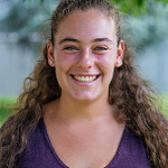
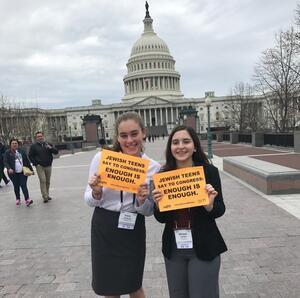
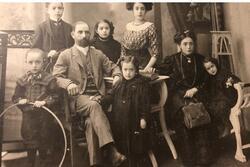
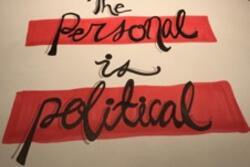
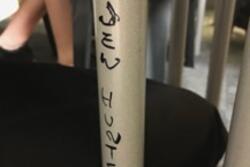


Cool!